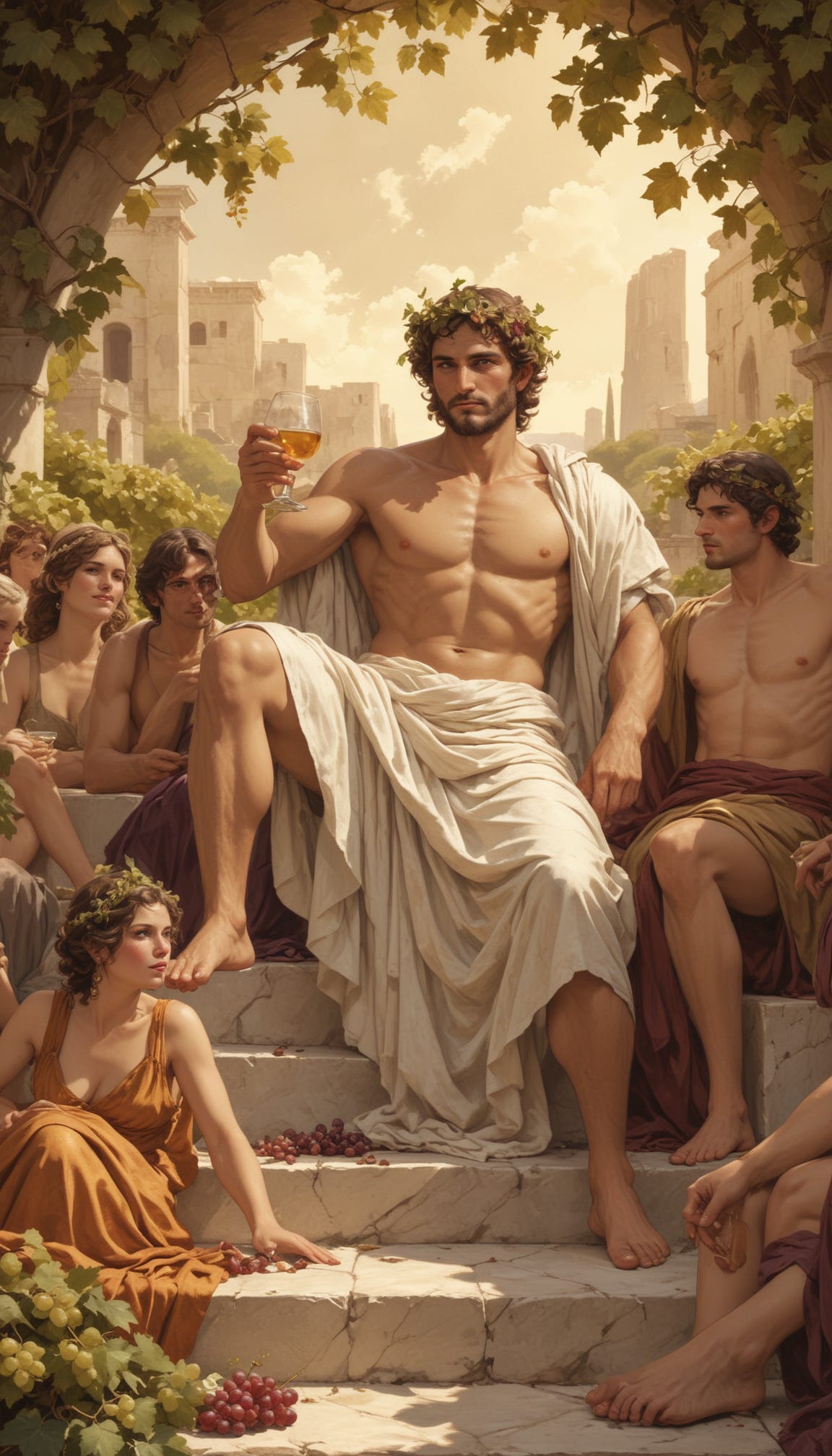The following article of Bacchus (Dionysus) was published be The Bridgeport Times and Evening Farmer on July 22, 1919.
No. 7—THE YOUTH OF BACCHUS.
The ancient Greeks discovered the potency of alcohol in the form of wine long before they emerged into the period of actual history. In the earliest legendary times, when fact was mixed with so much fable, wine is nearly always celebrated. The Greeks themselves could not find record of a time when it was not known, so they attributed its introduction to the gods, and gradually they associated it more and more with Dionysus, who is better known to us under the name of Bacchus, the son of Zeus and Semele.
If we could bring the past to life again and transport ourselves, just at this time of year, to ancient Athens, again and transport ourselves, in the early spring of year, to ancient Athens, From March 28 to April 2 the residents celebrated the passing of winter and the approach of summer, and in all their festivities Dionysus was the chief object of the reverence. He was regarded as having delivered the earth from the cold cheerlessness of winter, and a sacred image of the god was carried in procession through the streets, attended by a chorus of singing boys. In the best period of Athenian supremacy this festival was a joyous and stimulating occasion, culminating in the performance of great tragedies and comedies in the huge theater of Dionysus. Later it degenerated into more license.
It is curious to find in the myth of Dionysus a parallel to the modern struggle against alcohol. The Greek writers who describe the worship of the god say that after he had reached manhood he started to journey far and wide through the world to teach men how to raise grapes and how to convert the grape juice into wine. Often-times he was gladly welcomed, but there were many places where his coming was resented. Two kings agitated against him and one of them was such a fiery enemy to alcohol that Dionysus had to leap into the sea to escape his wrath. In another place three sisters who refused to join in the orgies of the god were transformed into birds. As both of the kings who opposed Dionysus were punished by the gods for their daring it is to be inferred that the ancient Greeks were not so ardent in their desire for prohibition as the people of the world are today.
Wine is frequently mentioned by Homer in his tales of the men and gods who fought under the walls of Troy. In his description of the wanderings of Ulysses there are two incidents in which wine played an important part in the hero’s life, in one of them being helpful and in the other harmful. The first was when Ulysses came to the island of the Cyclops, where the great giant Polyphemus lived in a cave and devoured the wanderer’s comrades. When but seven of them were left Ulysses brought out a great bowl of dark red wine, which he induced the giant to drink. It pleased him so much that he called for more and more of this drink that he had never before tasted and when he dropped off into a drunken stupor, Ulysses and his companions made their escape.
But on the island of Circe wine was less beneficial to the wise man of the ancient world. Here the enchantress mixed drugs with the wine that was served to the Greeks, and when they had forgotten their own land and friends she transformed them into swine. Ulysses escaped because he bore with him a magical plant, but had he not possessed this gift of the gods he, too, would have been turned into a grunting hog.1
The Bridgeport Times and Evening Farmer, “No. 7—the Youth of Bacchus,” Chronicling America: Historic American Newspapers. Lib. Of Congress, July 22, 1919, https://chroniclingamerica.loc.gov/lccn/sn92051227/1919-07-22/ed-1/seq-6/.




